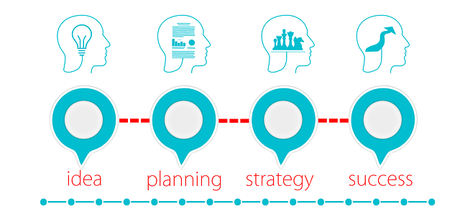Positioning is defined as the effort of developing the image of the product or service in the minds of the consumers. It means that at which level or standard your consumer positions the product in their minds. This phenomenon works on the basis of the competitive advantage.
Each product manufacturer has many competitors, trying to provide the best and unique selling propositions to their users. In order, to differentiate your product from the competitors it is very essential to bestow the users with the better advantages. On the basis of these advantages, the consumer will be able to differentiate your product from the competitors and will position the product.
These positioning strategies emphasizes on either the competition or the consumer. Both approaches take into account the product benefits and the consumer needs. The marketer does so by relating the products with the benefits which helps in developing the image of the brand. There are numerous ways to position the product that are demonstrated below:
Positioning by use of the product

Marketers often use this strategy to create an image of the brand by associating it with the application of the product. When there is a need to expand the market they confront this strategy.
Positioning by price/ quality
It is a human psyche that they unintentially associates the product price with its quality. It has been seen that if the product has higher prices, its quality will obviously be better and if the price is lower, it will not have the better quality. It’s the time for the marketer to change the concepts of the user by giving them price / quality advantage.
Some marketers are more concentered towards the quality. Their central core of advertising a product depends upon the quality, which reflects the high image of the brands, the price is considered as the secondary element to the benefits provided by the product.
Positioning by product class
This strategy illustrates that product is differentiated according to the class. For example a web site mspy blog needed to positions itself against other sites. The site which allure the best characteristics will be ranked higher by the user.
Positioning by attributes

We always compare the product attributes with the user advantages. The product that provides more benefits to the consumer with regard to its attributes, will be more preferred. It is a typical practice of the users that, before buying any cell phone they compare its attributes with the benefits that will be bestowed to them.
Positioning by cultural symbols
Before introducing any product in the market, it is crucial to know about the cultural values and norms of the people. Respecting the cultural norms of that specified area or people will surely give the marketer an advantage of success. Let’s have a look to an interesting example, McDonalds the most popular brand of fast food, did not get success in India. This happens just because of not taking into account the cultural values of the country.

